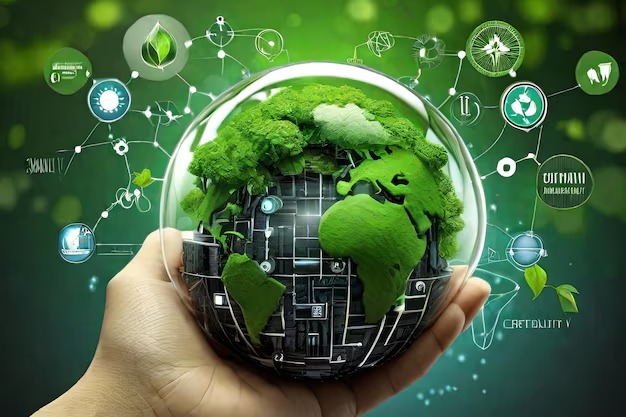
Wired – Explores how technology intersects with culture, science, and politics.
Exploring the dynamic convergence of technology with culture, science, and politics, this article delves into how innovations reshape societal norms, fuel groundbreaking scientific discoveries, and transform political power structures. It highlights the reciprocal influence between digital advances and human experience, emphasizing the ethical, social, and governance challenges that arise. Through this lens, we uncover the complex interplay driving the modern world’s evolution and the critical.
✨ Raghav Jain

Introduction
In a world increasingly defined by rapid technological advancement, the boundaries separating technology, culture, science, and politics are becoming ever more porous. These once distinct domains now intersect and interact in complex, often unpredictable ways. At the forefront of this exploration stands Wired, a magazine and digital platform that has, since its inception in 1993, dedicated itself to chronicling and analyzing this interplay.
Wired does more than report on gadgets or innovations—it investigates how these technologies shape, and are shaped by, human culture, scientific progress, and political systems. This article delves into how Wired acts as a lens through which the convergence of technology with societal spheres can be understood, illustrating its role as both a chronicler and a catalyst of change.
I. The Origin and Philosophy of Wired
Founded by Louis Rossetto and Jane Metcalfe, Wired emerged during the dawn of the digital age. It was a publication for early adopters, techno-utopians, and visionaries who believed in the transformative power of the internet and digital technologies. The magazine's manifesto embraced a futuristic outlook, positing that digital technologies were not only tools but cultural and political forces capable of redefining human life.
This philosophy remains central to Wired's identity. The publication consistently explores themes like digital ethics, artificial intelligence (AI), cyber security, and the socio-economic impact of innovation. Its pages blend reportage, essays, and visual artistry, reflecting the aesthetic and conceptual hybridity of the digital era.
II. Technology and Culture: Mutual Shaping Forces
One of the most profound insights Wired has offered over the years is the reciprocal relationship between technology and culture. In contrast to the deterministic view that technology unilaterally changes society, Wired presents a more nuanced picture in which cultural values, artistic expression, and human behavior also shape technological development.
Digital Art and Creativity
From the rise of digital art and NFTs to the impact of social media on creativity and communication, Wired has been at the forefront of cultural analysis. It has documented how platforms like Instagram and TikTok have reshaped aesthetic standards and how algorithms influence artistic visibility and commercial success.
Identity in the Digital Age
Issues of identity—gender, race, sexuality—are also frequently explored in the context of technology. Articles examine how technologies like facial recognition may reinforce racial bias, how the internet empowers marginalized voices, and how digital spaces are reshaping norms around gender and identity.
Pop Culture and Tech Icons
Wired also investigates the cultural significance of tech moguls like Elon Musk, Mark Zuckerberg, and others, portraying them as both innovators and mythic figures. These individuals are not merely business leaders—they are cultural icons whose ideologies shape the tech landscape and influence public discourse.
III. Technology Meets Science: Innovation and Ethics
Wired's science coverage is deeply intertwined with its technological focus, emphasizing how new discoveries are translated into practical tools and how these tools, in turn, reshape scientific inquiry.
Artificial Intelligence and Machine Learning
Wired offers extensive analysis of AI and its implications across multiple domains. From medical diagnostics to predictive policing, AI is transforming how knowledge is generated and decisions are made. However, Wired also critically examines ethical concerns such as algorithmic bias, privacy, and the displacement of human labor.
Biotechnology and CRISPR
The intersection of biotechnology and computing is another area where Wired excels. The magazine has reported extensively on CRISPR and gene editing, exploring not only the scientific mechanics but also the philosophical and ethical debates surrounding genetic modification.
Climate Science and Sustainability
As the climate crisis intensifies, Wired investigates how technology can aid or hinder environmental efforts. From renewable energy innovations to carbon capture and smart agriculture, the publication explores science-driven solutions and the politics that enable or block their implementation.
IV. Politics and Power in the Tech Age
In recent years, Wired has increasingly turned its attention to the political dimensions of technology. As tech companies gain power rivaling that of governments, the magazine has focused on how political systems interact with, regulate, and are influenced by technological advancements.
Surveillance and Privacy
From Edward Snowden’s revelations to China’s use of surveillance technology, Wired has covered the global implications of state and corporate surveillance. These stories emphasize the tension between national security and individual privacy, a recurring theme in modern politics.
Big Tech and Antitrust
The concentration of power in the hands of a few tech giants—Google, Amazon, Apple, Facebook (now Meta), and Microsoft—has prompted major political and legal challenges. Wired explores antitrust debates, regulatory efforts, and the global impact of these corporations, providing in-depth analysis of their influence over economies and democracies.
Digital Disinformation and Democracy
The magazine has also tackled how misinformation spreads through social networks, affecting elections, public health, and social cohesion. It scrutinizes platforms like Twitter (now X) and Facebook for their role in shaping political narratives and contributing to polarization.
V. Wired as a Medium and a Message
It’s not just Wired's content that makes it influential—it’s also its format and style. The magazine’s bold graphics, futuristic typography, and experimental layouts reflect the very ethos it seeks to explore. In its digital incarnation, Wired.com blends interactive media, podcasts, and video storytelling to reach a broad, tech-savvy audience.
Moreover, Wired has become a hub for multidisciplinary dialogue. It brings together journalists, technologists, ethicists, artists, and policy-makers to foster critical conversations about where humanity is headed.
In today’s rapidly evolving world, where technology permeates every facet of human existence, understanding the intricate relationship between technology, culture, science, and politics becomes paramount; technology is no longer just a set of tools but a dynamic force that shapes societal values, cultural expressions, scientific discovery, and political power structures, creating a complex web of interactions that influence how individuals and communities live, communicate, govern, and innovate. The evolution of digital platforms has transformed traditional culture, giving rise to new forms of art, identity, and social interaction that redefine what it means to belong and express oneself in the modern age—social media platforms such as Instagram, TikTok, and Twitter not only serve as communication tools but also as arenas where cultural norms are challenged, reshaped, or reinforced, affecting everything from aesthetics to political activism. Technology also acts as a catalyst for scientific breakthroughs, accelerating research in fields such as artificial intelligence, biotechnology, and climate science, where computing power and data analytics enable innovations like CRISPR gene editing, predictive models for disease outbreaks, and renewable energy solutions; yet, these advances bring with them ethical dilemmas concerning privacy, equity, and long-term societal impact, raising questions that transcend the laboratory and enter the realms of philosophy, law, and public policy. Meanwhile, the political landscape is being reshaped by the unprecedented influence of technology corporations and the digital infrastructure they control, where issues of surveillance, data ownership, misinformation, and digital rights challenge traditional notions of sovereignty and democracy; governments and regulatory bodies grapple with how to balance innovation with protection of citizens’ freedoms and security, confronting questions about censorship, monopolistic practices, and the transparency of algorithms that increasingly mediate public discourse. This convergence means that the progress or pitfalls in one domain—be it a technological innovation, a cultural movement, a scientific discovery, or a political decision—can ripple across the others, highlighting the need for multidisciplinary dialogue and holistic understanding. Publications like Wired magazine have emerged as vital platforms that document and analyze these intersections, not merely reporting on new gadgets or scientific findings but critically examining the broader implications, from the empowerment and marginalization of digital communities to the ethical boundaries of emerging technologies, and from the cultural mythmaking around tech leaders to the global political struggles over digital infrastructure. Through engaging storytelling, in-depth investigative journalism, and an innovative approach to design and media, Wired fosters conversations that illuminate the promises and perils of living in a hyper-connected world, inviting readers to question assumptions about progress and to consider who benefits or loses in the relentless march of technological change. At the heart of this exploration is the recognition that technology is not neutral; it embodies the values, biases, and power dynamics of its creators and users, thereby influencing societal norms and individual identities in profound ways—from algorithmic biases that affect marginalized groups to the democratizing potential of open-source software and decentralized networks. Moreover, the interplay between technology and culture is evident in how digital spaces redefine social rituals and community-building, whether through virtual reality environments that simulate new forms of presence or through online activism movements that mobilize millions around causes ranging from climate justice to racial equality, demonstrating that technology can be both a tool of control and a means of liberation. Science, fueled by technological tools, continues to push the boundaries of what is possible—from mapping the human genome to exploring outer space—but also compels us to confront the consequences of these advances, such as ethical concerns about human enhancement or the environmental cost of digital infrastructure, urging a cautious yet forward-looking approach to innovation. In the political realm, the rise of big data and surveillance technologies introduces new paradigms of governance and social control, where the balance between security and privacy is continuously contested, and where digital disinformation campaigns threaten the fabric of democratic processes, underscoring the importance of media literacy and robust regulatory frameworks. Together, these facets highlight the inseparability of technology from the social, scientific, and political contexts in which it develops and operates, underscoring the necessity for inclusive, critical, and interdisciplinary engagement to shape a future where technological progress aligns with human values and global wellbeing. This complex, dynamic interaction shapes not only the material conditions of life but also the narratives through which societies understand themselves and envision their futures, making the role of media like Wired indispensable in interpreting, critiquing, and guiding the ongoing dialogue about technology’s place in our shared human journey.
In the rapidly accelerating digital age, the profound intersection of technology with culture, science, and politics presents a multifaceted and dynamic landscape that demands comprehensive exploration and understanding, as technological innovation no longer exists in isolation but rather continuously shapes and is shaped by the social fabric, ethical considerations, scientific breakthroughs, and governance structures that govern modern life; from the earliest days of the internet’s emergence to the current proliferation of artificial intelligence, biotechnology, and ubiquitous data networks, technology has evolved into a pervasive force that redefines how societies communicate, create, govern, and conceptualize identity, challenging traditional paradigms and creating novel opportunities and risks that ripple through cultural norms, scientific inquiry, and political power. The cultural impact of technology is evident in the transformation of human interaction and expression, where digital platforms like social media have revolutionized the way individuals engage with art, politics, and each other, fostering new forms of community and activism but also raising concerns about polarization, misinformation, and digital surveillance; the algorithmic architectures underpinning these platforms influence not only what users see but also how identities and ideologies are formed and contested, as social movements harness digital tools to amplify marginalized voices while simultaneously confronting new modes of exclusion and bias embedded within the technology itself. At the same time, the rapid advancement of scientific knowledge—propelled by computational power, machine learning, and big data analytics—has ushered in groundbreaking discoveries and applications in fields such as genomics, medicine, climate science, and space exploration, enabling humanity to address age-old challenges with unprecedented precision and scale but also provoking urgent ethical debates about the limits of human intervention, data privacy, and the equitable distribution of benefits; technologies like CRISPR gene editing and AI-driven diagnostics blur the boundaries between natural and artificial, raising philosophical and practical questions about identity, agency, and responsibility in a world where biological and digital systems increasingly intertwine. Politically, the digital revolution reshapes governance, diplomacy, and civic life, as state and non-state actors vie for control over information flows, technological infrastructure, and data sovereignty; the rise of surveillance capitalism and mass data collection challenges traditional notions of privacy and citizenship, while issues like election interference, cyber warfare, and digital censorship reveal the vulnerabilities of democratic institutions to technological manipulation. Moreover, the unprecedented concentration of power among a handful of global tech corporations compels scrutiny of monopolistic practices and regulatory failures, as these entities wield influence comparable to or exceeding that of nation-states, shaping public discourse, economic opportunity, and even geopolitical alliances; questions about transparency, accountability, and ethical stewardship become central to debates about how technology can be governed in ways that protect human rights and promote social justice. At the confluence of these domains, publications like Wired magazine serve as crucial platforms for interdisciplinary dialogue, critical reflection, and public education, articulating the promises and perils of living in an interconnected, algorithmically mediated world; through incisive journalism, in-depth analysis, and visionary storytelling, Wired illuminates the ways technology transforms culture, fuels scientific progress, and disrupts political power, while also probing the underlying ethical, social, and philosophical questions that accompany such profound change. Its coverage extends beyond the celebration of innovation to include sober examinations of the challenges posed by technological disruption, such as labor displacement, environmental impact, social fragmentation, and the digital divide, advocating for an inclusive approach to technology that centers human dignity and collective well-being. By chronicling the stories of innovators, policymakers, activists, and everyday users, Wired captures the complex narratives that define the digital era and fosters a deeper understanding of how technology intersects with identity, creativity, knowledge production, and governance. This holistic perspective underscores the inseparability of technology from the cultural, scientific, and political contexts that shape its development and consequences, emphasizing the need for collaborative, multidisciplinary approaches to address the risks and harness the opportunities presented by the digital transformation. As societies grapple with the accelerating pace of change, the dialogue facilitated by Wired highlights the importance of fostering critical digital literacy, ethical frameworks, and equitable policies that can guide technological innovation toward outcomes that enhance human flourishing and planetary sustainability. Ultimately, the exploration of how technology intersects with culture, science, and politics is not merely an academic exercise but a vital undertaking that influences the trajectory of humanity itself, inviting us to reconsider what progress means in a world where digital technologies increasingly mediate experience, knowledge, and power, and challenging us to envision futures that are just, inclusive, and resilient in the face of constant transformation.
Conclusion
In an age defined by uncertainty and transformation, Wired offers a crucial platform for understanding the interplay between technology and the larger social fabric. Its commitment to investigating not just what is happening, but why it matters, makes it an indispensable resource. As we move deeper into the 21st century, the questions Wired raises—about power, identity, innovation, and ethics—will only become more pressing. Through its lens, we are better equipped to navigate the complexities of a hyper-connected, rapidly evolving world.
Q&A Section
Q1:– What is the main focus of Wired magazine?
Ans:– The primary focus of Wired is to explore how technology intersects with culture, science, and politics, analyzing how innovations shape and are shaped by societal dynamics.
Q2:– How does Wired approach the topic of artificial intelligence?
Ans:– Wired explores AI not just in terms of technical development but also its ethical, social, and economic impacts, such as algorithmic bias, job displacement, and privacy concerns.
Q3:– Why is Wired considered a cultural commentator, not just a tech magazine?
Ans:– Wired delves into how technology influences art, identity, and daily life. It treats technological trends as cultural phenomena, reflecting their deeper implications on society.
Q4:– How has Wired reported on political issues related to technology?
Ans:– The magazine addresses topics like surveillance, antitrust actions against Big Tech, digital misinformation, and the regulation of powerful tech firms, providing a political lens on technological power.
Q5:– What makes Wired’s visual and editorial style unique?
Ans:– Wired is known for its bold design, futuristic aesthetic, and innovative layout, mirroring the creativity and disruption it covers in its content.
Similar Articles
Find more relatable content in similar Articles

Protecting Kids in the Digital..
In an increasingly connected w.. Read More

Digital DNA: The Ethics of Gen..
Digital DNA—the digitization a.. Read More

Data Centers and the Planet: M..
As cloud computing becomes the.. Read More

Wearable Health Sensors: The D..
Wearable health sensors are re.. Read More
Explore Other Categories
Explore many different categories of articles ranging from Gadgets to Security
Smart Devices, Gear & Innovations
Discover in-depth reviews, hands-on experiences, and expert insights on the newest gadgets—from smartphones to smartwatches, headphones, wearables, and everything in between. Stay ahead with the latest in tech gear
Apps That Power Your World
Explore essential mobile and desktop applications across all platforms. From productivity boosters to creative tools, we cover updates, recommendations, and how-tos to make your digital life easier and more efficient.
Tomorrow's Technology, Today's Insights
Dive into the world of emerging technologies, AI breakthroughs, space tech, robotics, and innovations shaping the future. Stay informed on what's next in the evolution of science and technology.
Protecting You in a Digital Age
Learn how to secure your data, protect your privacy, and understand the latest in online threats. We break down complex cybersecurity topics into practical advice for everyday users and professionals alike.
© 2025 Copyrights by rTechnology. All Rights Reserved.